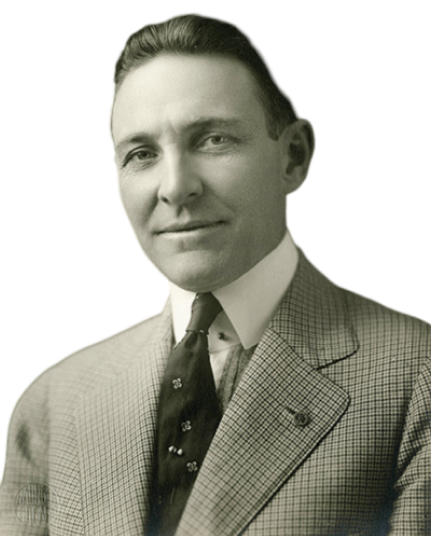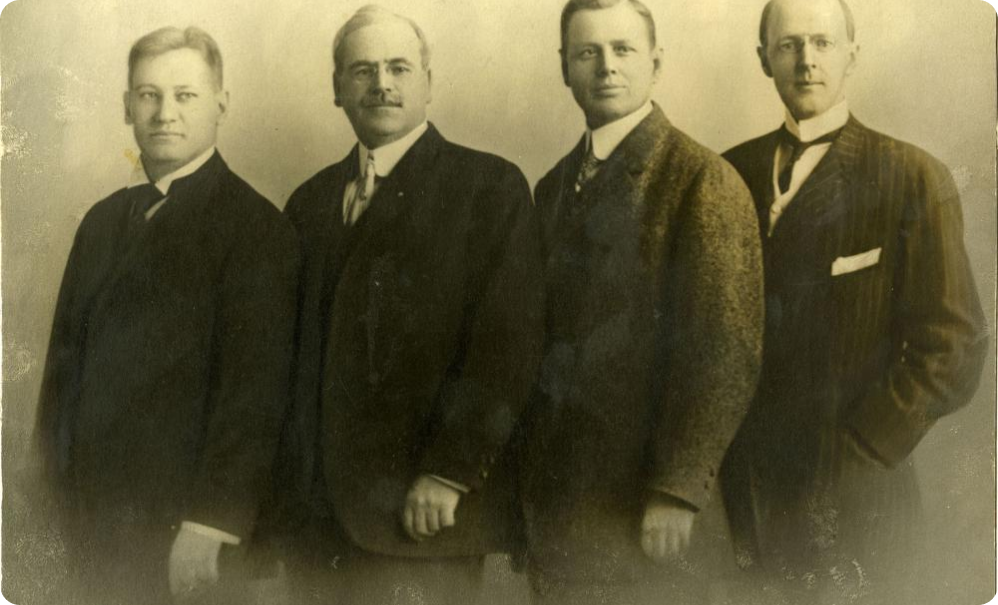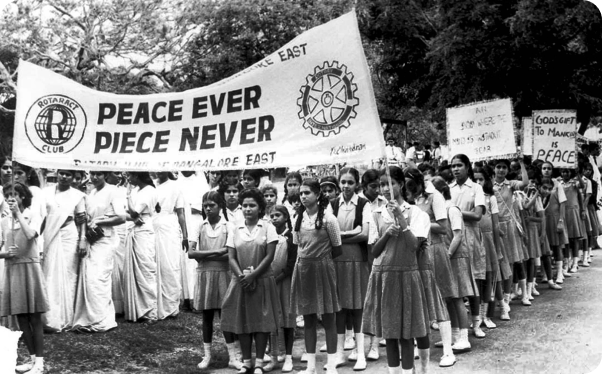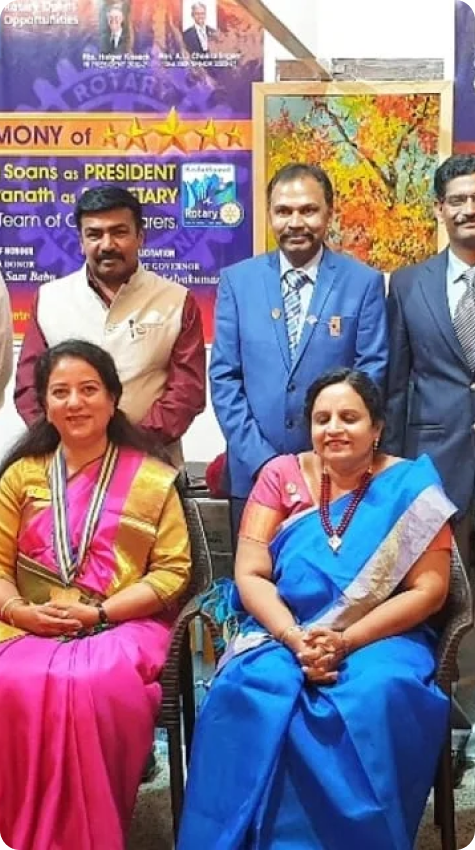ARCH C. KLUMPH
THE FATHER OF THE ROTARY FOUNDATION
“Carrying on, as we are, a miscellaneous community service, it seems eminently proper that we should accept endowments for the purpose of doing good in the world, in charitable, educational or other avenues of community progress, or such funds could be well used for extension work.”



In 1917, RI President Arch C. Klumph proposed that an endowment be set up “for the purpose of doing good in the world”. In 1928, when the endowment fund had grown to more than US $ 5,000. It was renamed The Rotary Foundation, and it became a distinct entity within Rotary International.
Five Trustees, including Klumph, were appointed to “hold, invest, manage and administer all of its property as a single trust, for the furtherance of the purposes of RI”.
Two years later, the Foundation made its first grant of $ 500 to the International Society for Crippled Children. The organization, created by Rotarian Edgar F. “Daddy” Allen, later grew into the Easter Seals.
Rotary is a global network of more than 1.2 million neighbors, friends, leaders, and problem-solvers who see a world where people unite and take action to create lasting change – across the globe, in our communities, and in ourselves.
Solving real problems takes real commitment and vision. For more than 110 years, Rotary’s people of action have used their passion, energy, and intelligence to take action on sustainable projects. From literacy and peace to water and health, we are always working to better our world, and we stay committed to the end.
What we do - 7 areas of focus
Rotary members believe that we have a shared responsibility to take action on our world’s most persistent issues. Our more than 45,000 clubs work together to:
Rotary
Areas of Focus
Rotary
Areas of Focus
Rotary
Areas of Focus
Rotary
Areas of Focus
Rotary
Areas of Focus
Rotary
Areas of Focus
Rotary
Areas of Focus
Rotary the 4 Way Test
In 1932, Rotarian Herbert J. Taylor created The Four-Way Test, a code of ethics adopted by Rotary 11 years later. The test, which has been translated into more than 100 languages, asks the following questions:

Is it the truth?

Is it Fair to all concerned?
Will it be build Goodwill and better friendships ?
Will it be beneficial to all concerned ?

Founder of Rotary International

Founded in 2013, the Rotary Club of Calcutta Visionaries emerged from the passion of like-minded individuals committed to creating a better world. This dream was not just an aspiration; it was a call to action, fuelled by unwavering dedication to serve humanity and uplift society.
As the years went by, our community grew, welcoming more members who shared this vision. Notably, our commitment extended beyond individual members to their families, with our club being a couple’s club with spouses actively participating and children joining our community-based Interact Club of Calcutta Visionaries. This collective enthusiasm has made the Visionaries a unique club within the district.
Our team continues to make a significant impact through a variety of projects focused on literacy, medical and non-medical assistance, vocational training, water and sanitation, and more. These initiatives have provided vital support to those in need, demonstrating our commitment to social betterment.
Regular meetings and club programs foster strong friendships among our members, enhancing the fellowship that the Visionaries are renowned for.
Now in our 12th year, the Rotary Club of Calcutta Visionaries proudly boasts over 70 dedicated members, all united by a common goal: to make the world a better place.
“Vision without action is merely a dream. Action without vision just passes the time. Vision with action can change the world.”
Rotary and World War II
During World War II, many clubs were forced to disband, while others stepped up their service efforts to provide emergency relief to victims of the war, in 1942, looking ahead to the postwar era, Rotarians called for a conference to promote international educational and cultural exchanges. This event inspired the founding of UNESCO.
In 1945, 49 Rotary Club members served in 29 delegations to the UN Charter Conference, Rotary still actively participates in UN conferences by sending observers to major meetings and covering the United Nations in its publications.
“Few there are who do not recognize the good work which is done by Rotary Clubs throughout the free world”, former Prime Minister Winston Churchill of Great Britain once declared.


Dawn of a new century
As it approached the 21st Century, Rotary worked to meet society’s changing needs, expanding its service efforts to address such pressing issues as environmental degradation, illiteracy, world hunger, and children at risk.
In 1989, the organization voted to admit women into clubs worldwide and now claims more than 145000 female members in its ranks.
After the collapse of the Berlin Wall and the dissolution of the Soviet Union, Rotary Clubs were formed or re-established throughout Central and Eastern Europe. The first Russian Rotary Club was chartered in 1990, and the organization underwent a growth spurt for the next several years.
More than a century after Paul Harris and his colleagues chartered the Club that eventually led to Rotary International, Rotarians continue to take pride in their history. In honor of that first Club, Rotarians have preserved its original meeting place, Room 711 in Chicago’s Unity Building, by re-creating the office as it existed in 1905. For several years, the Paul Harris 711 Club maintained the room as a shrine for visiting Rotarians. In 1989, when the building was scheduled to be demolished, the Club carefully dismantled the office and salvaged the interior, including doors and radiators. In 1993, the RI Board of Directors set aside a permanent home for the restored Room 711 on the 16th floor RI World Headquarters in nearby Evanston.
Today, 1.2 million Rotarians belong to over 32,000 Rotary Clubs in more than 200 countries and geographical areas.

